Hi and welcome to the Storyteller! I hope you all enjoyed #1 of the reboot (so to speak). Today’s sophomore offering is my take on the end-of-year posts you typically see on social media platforms around this time. It’s longer than last week’s issue so grab a cuppa and settle in.
First, holiday reads. As someone who works in this industry, I’m aware of the logic of seasonal publishing (another example is beach reads in the summer), but as a severe mood reader with a wide-ranging taste (and someone who doesn’t like her choices dictated for her), my story is a little different. I love the idea and may even partake at times (especially in the autumn), but more often than not, by this time of year I usually crave a different kind of cozy—I feel a particular pull to be firmly ensconced in the familiar certainty and comfort of rereads. Here is one such story I return to around the holidays.
Capote’s Christmas
(This essay was originally published in 2016 on University of Chichester’s dedicated international short-story forum, Thresholds.)
‘A Christmas Memory’ by Truman Capote is far from being a feel-good holiday story, but that shouldn’t deter the reader from diving right into a ‘morning in late November’ when a woman, whom the narrator refers to only as his friend, looks out of the window of the farmhouse and exclaims that it is ‘fruitcake weather’.
Capote’s tale of the bond between a sixty-year-old woman and a seven-year-old boy (himself) may not rank high among his other literary works, but there is much here that throws light on his unconventional childhood, his complicated relationship with distant parents, and the roots of the much-troubled and controversial adult the world is familiar with.
Born in New Orleans to Archulus Persons and Lillie Mae Faulk, Truman Capote was sent to live with family in Monroeville, Alabama, where his mother had grown up. It is here that, as a neglected and rather effeminate child, Capote found a kindred spirit in his much-older cousin, Miss Sook Faulk, who he describes as ‘still a child’ in the story. They had to rail against those around them who didn’t understand their deep friendship or their eccentricities.
Other people inhabit the house, relatives; and though they have power over us, and frequently make us cry, we are not, on the whole, too much aware of them. We are each other’s best friend.
In the story, the narrator sets the scene on that morning in late November with deft descriptions of the kitchen and of his friend—white, shorn hair, tennis shoes, and a shapeless grey sweater over a summery calico dress. At this point we are already part of their private world and share in their excitement as an annual ritual unfolds. They have a ‘Fruitcake Fund’ where they save and scrape together money throughout the year to make holiday cakes for their ‘friends’—people, the narrator says, they have met only once or not at all, ranging from Baptist missionaries, the knife-grinder who comes through town twice a year, and even President Roosevelt!
Is it because my friend is shy with everyone except strangers that these strangers, and merest acquaintances, seem to us our truest friends?
We are swept up in events as Sook and the narrator (she calls him Buddy after a childhood friend who died young) prepare for Christmas. They hitch up a buggy made from a dilapidated baby carriage that was once the narrator’s, and go to find pecans hidden amongst the fallen leaves and frost, using the same buggy to bring home their purchases of ‘cherries and citron, ginger and vanilla and canned Hawaiian pineapple’. Retiring to Sook’s room, away from the eyes of the others, they carefully count the money from their fund on a ‘scrap-quilt-covered iron bed painted rose pink, her favourite colour’. They venture into the forest to pick out the perfect Christmas tree—‘twice as tall as a boy. So a boy can’t steal the star’—before making decorations and Christmas presents for their family and for each other.
For those of you hooked onto your plot twists and reveals, I will warn you that nothing exciting happens in the story, but it doesn’t matter. The descriptions are detailed and poetic without appearing convoluted. They animate place, character, even the pair of handmade kites that Sook and Buddy gift each other for Christmas. The same writing that appears irreverent and flippant in Breakfast at Tiffany’s is transformed here into a light, breezy style that doesn’t get weighed down with the content, yet never glosses over its considerable depths. Capote is a master of evocative simplicity that makes even the ordinary shine and sparkle until you feel like you know the characters intimately, as though they are old friends to whom you are paying a visit. So when, on Christmas Day, after they have been flying their kites, Sook says that God is in the small things and she could leave the world with today in her eyes, we feel a sense of true intimacy with her epiphany. This is to be their last Christmas together and, at the end, we brace ourselves for the inevitable, just as Buddy, who is shipped off to military school, knows it in his bones even before he hears the news.
This story isn’t just a throwback to a simpler, uncomplicated time. Neither Sook nor Buddy has it easy and lack of money is the least of their worries. Even Capote, when questioned years later about his childhood, said that he felt like “a spiritual orphan, like a turtle on its back”. Instead, it is also about two very lonely, seemingly mismatched people who try and create their own magic.
They ‘feel connected to eventful worlds beyond the kitchen with its view of a sky that stops’, through their scrapbook of the thank-you cards they receive for their fruitcakes. And if the clarity and fondness evident in every word of the story is anything to go by, it shows that, despite everything, the time Capote spent with Sook and Queenie—‘our tough little orange and white rat terrier who has survived distemper and two rattlesnake bites’—was some of his most treasured. A small haven of complete acceptance among the other isolation of his childhood with another misunderstood, unloved, and ignored soul. If what came after is any indication, it appears that he never let go of that little boy.
This makes ‘A Christmas Memory’ an even more precious commodity. This is pure, raw, flawed Capote without the infamous big personality, the pretense and other paraphernalia that surrounded him through much of his later life. It is genuine and sweet; the innocence and sense of wonder of a seven-year-old boy perfectly balanced with the more mature and retrospective bent of mind that has painstakingly, almost reverently, recreated the moments as an adult. He manages to craft an engaging intimacy of his very unique Southern origins and allows us to share in his memories, prompting us to look back on our own. Best of all, it is a beautiful, heartfelt tribute to the one person who truly understood and accepted him for who he was. The ‘only stable person’ in his life.
Though she never got to read it.
And as long as you remember me, then we’ll always be together.
What stories draw you in during this time of year, whether in what you read or watch? Let me know your seasonal recommendations in the comments.
My writing year (aka all the links your heart desires).
2022 saw me publish two flash fiction to bookend the year, write five interview features, release a travel CNF micro-collection, scribble multiple reviews across genres, and submit a flash fiction chapbook. I also celebrated the one-year anniversary of my debut novelette Summer Melody (published by Alien Buddha Press in November 2021) and the high point of it cementing itself on the publisher’s all-time top ten list in May.
But more than any year prior, this has felt like a year of shifts. I’d spent almost a decade on and off on the story whose final version is in the photo above. I thought I’d feel the sense of a new beginning after it was published last year, but I should have realised that the continued efforts necessary to publicise and help it find the right readers, especially as an indie author, wouldn’t allow it to feel that way for the first 365 days. Then, there’s the flash fiction chapbook. The bulk of stories in there are unpublished and I’d spent the better part of a year working on them, even longer thinking about them. Sending the collection off for consideration means that for the first time in a very long time, I have the space to explore some of the newer ideas and stories I’d like to tell; I can finally meet characters that have been quiet on the periphery, chase down exciting threads ruminating in all the non-conscious levels of my brain, through all the books and stimuli I’ve been feeding it.
Flash fiction
~ Myths, generational curses, and magic. Hope you enjoy getting to know Mira, whom you’ll be seeing a lot more of in the future ;)
https://www.tethersendmagazine.com/anushree-nande
~ What is so nostalgia-inducing about slow, humid summer days? Join our narrator on a walk around the neighbourhood on one such afternoon.
https://www.presspausepress.org/anushree-nande
Pomegranate Summer
You can now find my new travel micro-collection on all Kindle platforms (free if you have Kindle Unlimited). Paperbacks are available in select Amazon marketplaces.
https://www.amazon.com/dp/B0BMXC2TRT
Pomegranate Summer, named so after the national fruit of Granada, the setting of one of the pieces, is the first in a series of postcard dispatches for readers on the go.
The gorgeous cover is by, who else, Shivani Khot.
HT Brunch
I’ve freelanced for Hindustan Times Brunch since 2016. This year they published five of my interview features, my most-ever for them in a single calendar year, and I’m excited to share what I’ve got planned for 2023.
Big shoutout to Jamal Shaikh and Urvee Modal for continuing to give me a space to write about books, authors, writing, and more.
And, of course, my heartfelt thanks to all the authors who shared their time and insights with me over the course of the year.
1. The darkness behind the light - R.F. Kuang
2. On and off the field: Jonathan Harding
Online: https://www.hindustantimes.com/lifestyle/brunch/books-on-and-off-the-field-101664562012054.html
I’ve also reviewed his book, Soul: The Making of an Athlete for Football Paradise (illustration by guess who?).
3. Field notes for sedentary women - Tanvie Hans
4. The only way to save the world is to just be yourself - Musa Okwonga
5. Fantasy island - Helene Wecker
Online: https://www.hindustantimes.com/lifestyle/brunch/books-fantasy-island-101644085345114.html
Summer Melody
The support and love for my debut novelette, despite it still not being available in India in print (I really hope to have good news for you on that front sooner than later—watch this space), has been heartwarming. Thank you to everyone who bought a copy, recommended it to others, wrote about it, took time out to spend with my words, and shared in all the milestones with me.
It means the world and nourishes me on the doubting days.
Though, when the one and only Lee Child calls SM “really nice work: delicate, oblique, moving” and writes that he hopes to see much, much more, what else can one do but dive back in and keep chipping away?
Blurb:
Summer Melody tells the story of Sophie Walters, a twenty-something violinist from London whose complicated connection with music is matched only by her difficult relationship with her mother, April. When her first love, the enigmatic cellist Paul Clark, unexpectedly returns to London, just after her estranged best friend, Robby Summers, Sophie is forced to confront everything she’s ever kept buried.
This is a story about complicated people who try, in their imperfect ways, to process emotion and the fears that come from simply being human. This is about identity, about how music runs through their lives in different ways, how it helps them to create the most personal of expressions, and, in turn, make sense of their feelings, the world around, and the people in them. Summer Melody is, most importantly, about the hope that it’s never too late to find your way.
You can read the first five pages here, find my author’s note, as well as some behind-the-scenes tidbits about the evolution of the story, below. Another work, another beautiful cover by Shivani. Speaking of, we’re collaborating on something very special for 2023—what do you think it is?
I was also interviewed by Jeffrey Davies for the 20 Questions feature on his website, and invited to write a guest post for Laura over at Laura’s Books and Blogs (shoutout to John Snyder and Ann Varghese of WeBookMedia who helped me get both of these - if you’re looking for freelance publicity help, they’re your folks; message me for their contact details).
Tis the season…
to support small businesses.
Today, I have two recommendations. Let me know yours and I’ll make sure to share them in issue #3!
First up is Simran Rohira over at simulationstation23. Original art, art prints, greeting cards—she has them all and takes custom commissions. Her Etsy is on hiatus till January 18, 2023, but find her Instagram here (and request her catalogue if you’re in India).
Second up is Aarushi of Handivity Designs who makes the loveliest book sleeves to protect our precious book babies (paperback, hardback, even Kindles). Check out this reel for a comprehensive look at what she offers.
She was also kind enough to send me this discount for Storyteller subscribers if they wish to purchase anything from her shop: use “booksinboston” for Rs. 200 off all book and Kindle sleeves (free worldwide shipping; COD available for folks in India).
And that folks is that.
Please feel free send in recommendations—books, movie, TV shows, authors to interview, ideas of what you’d like me to write on, rants/ramblings/excited monologues, GIFs and memes (especially them) and more. Just drop me a line and turn this into a conversation, even if just to say hi and let me know what you thought of the latest issue :) Or share this with someone you think might enjoy it.
I’ll see you next on January 1. Happy and restful holidays!
Anu
If you really like the newsletter, please feel free to buy me a coffee: https://ko-fi.com/anushreenande
You can find me on Twitter at @AnuNande (follow for all the football chatter) and on Instagram at @booksinboston.

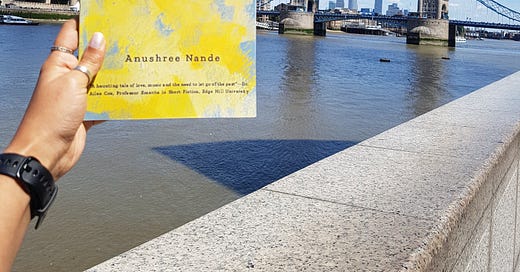


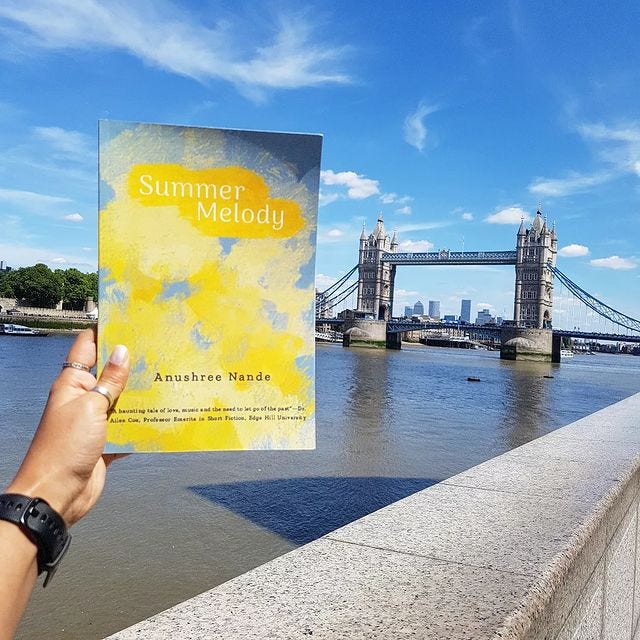


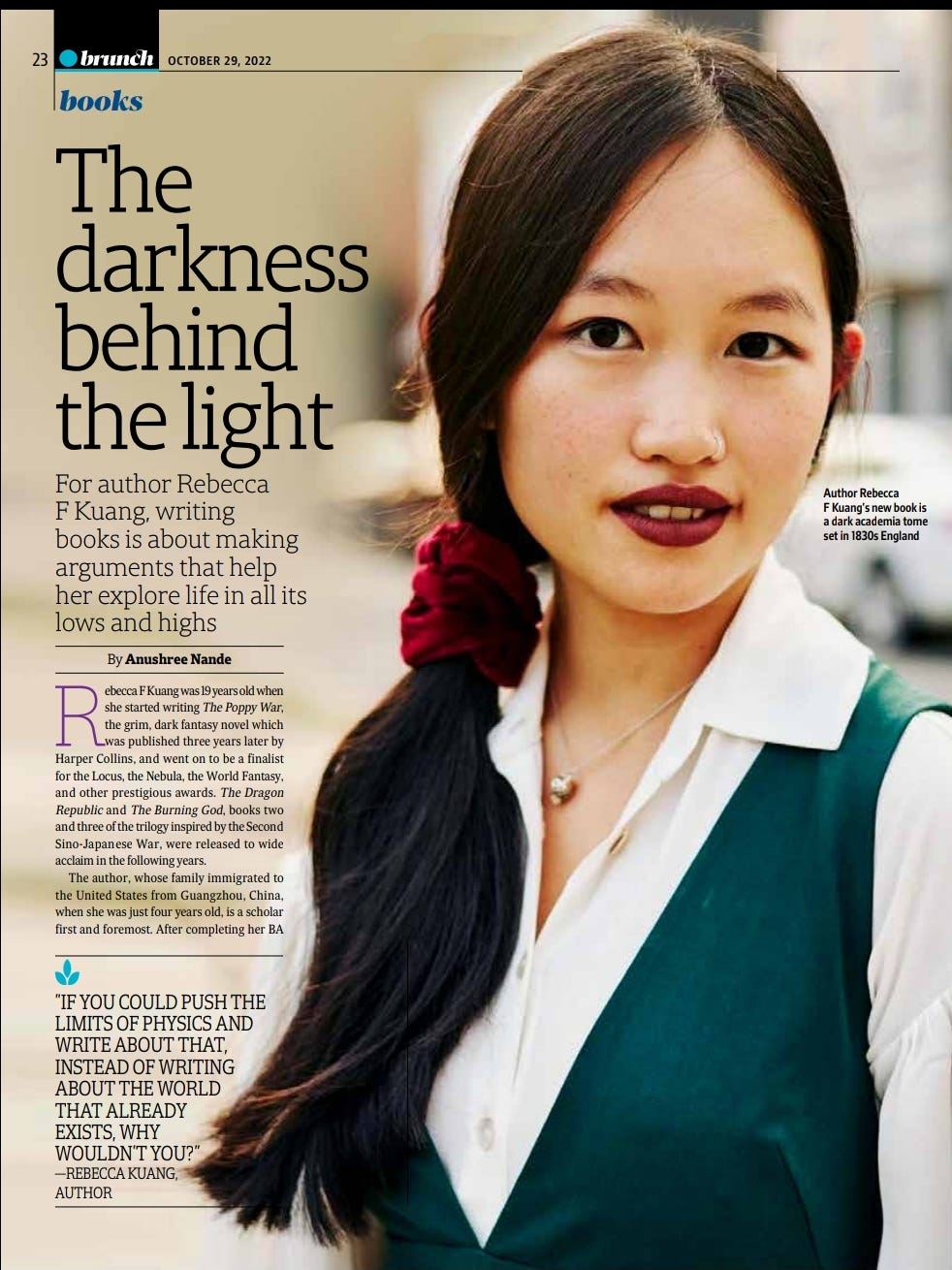
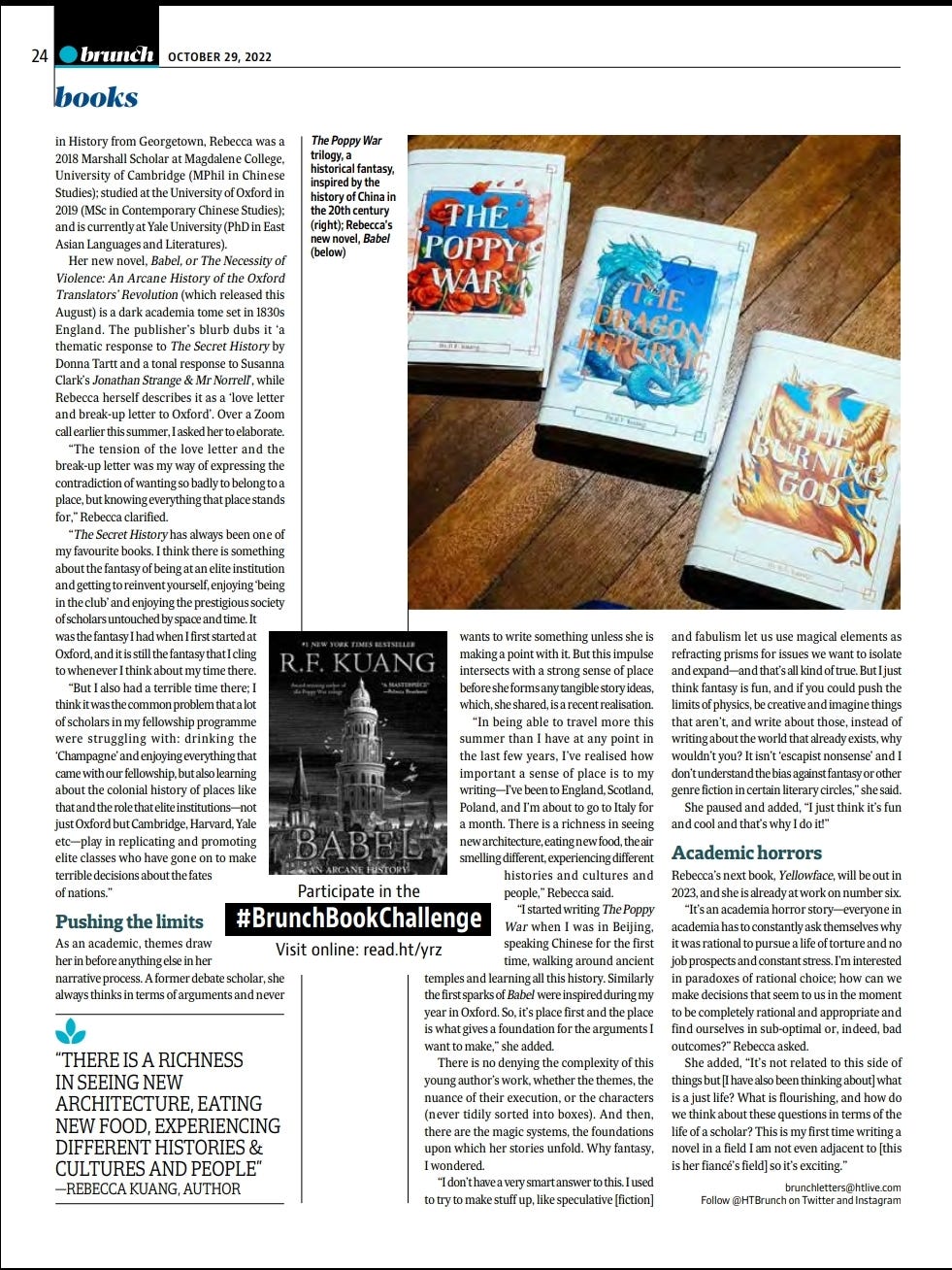


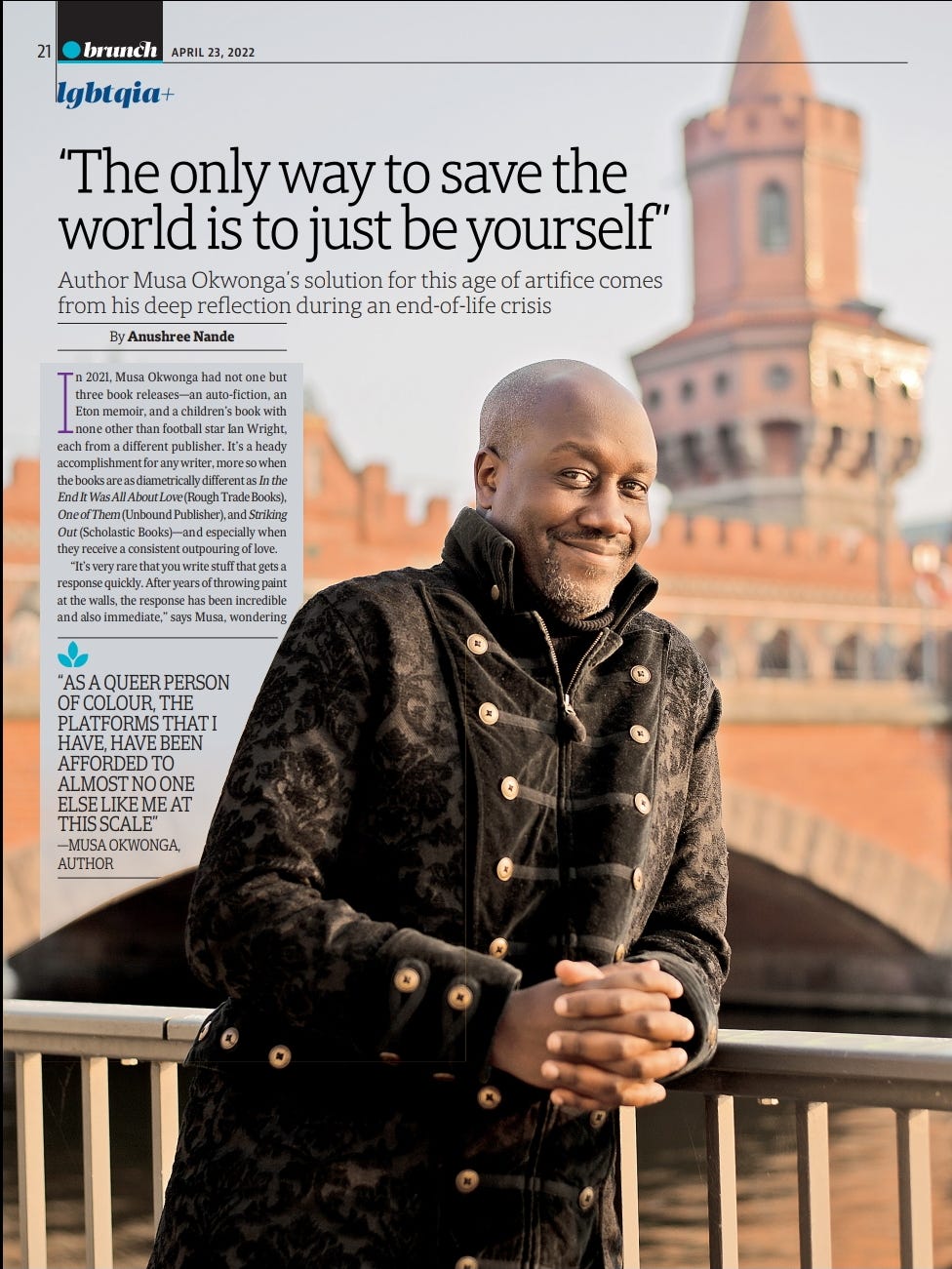


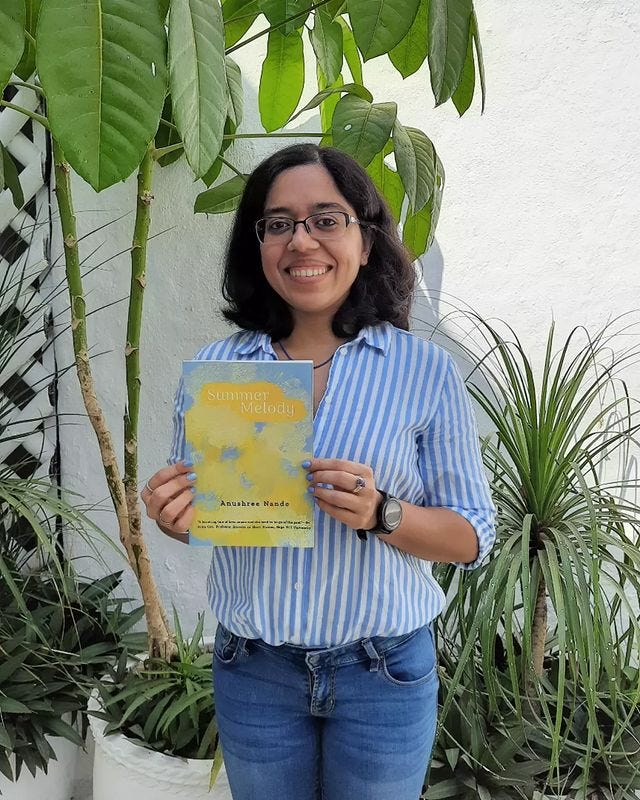

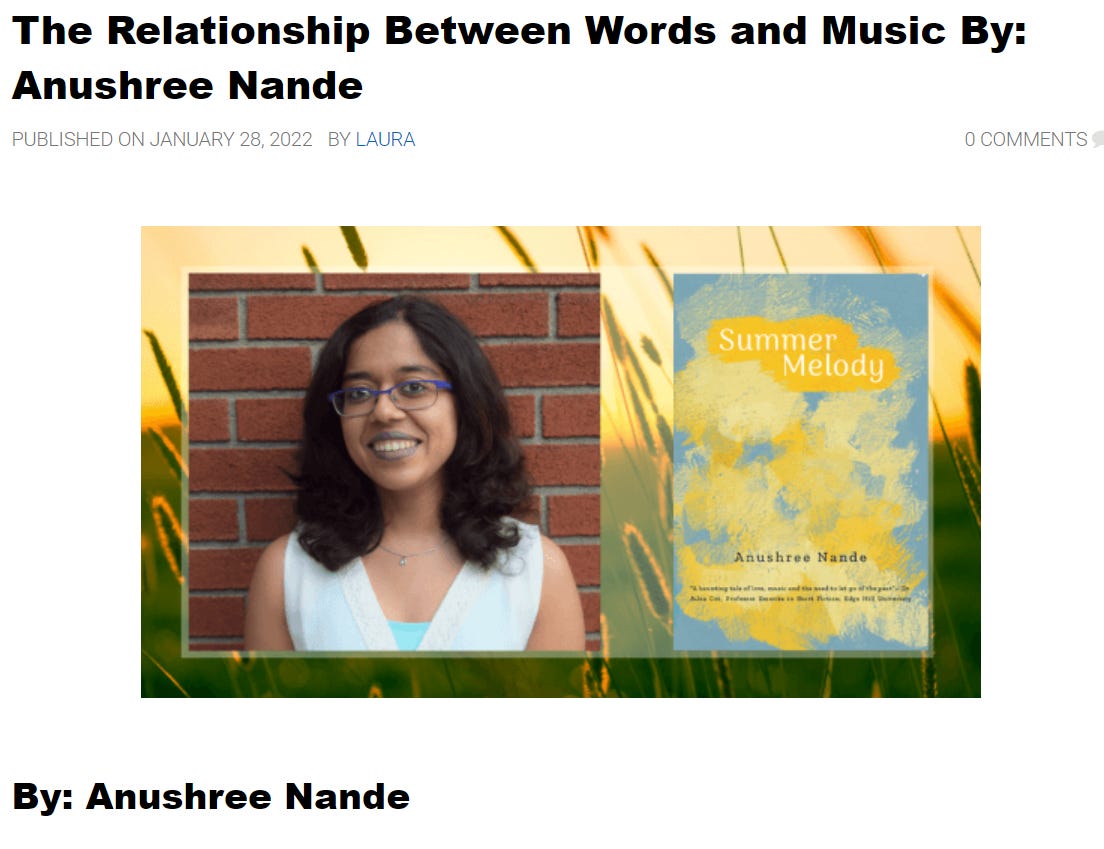
I like reading mysteries and thrillers in the winter season.